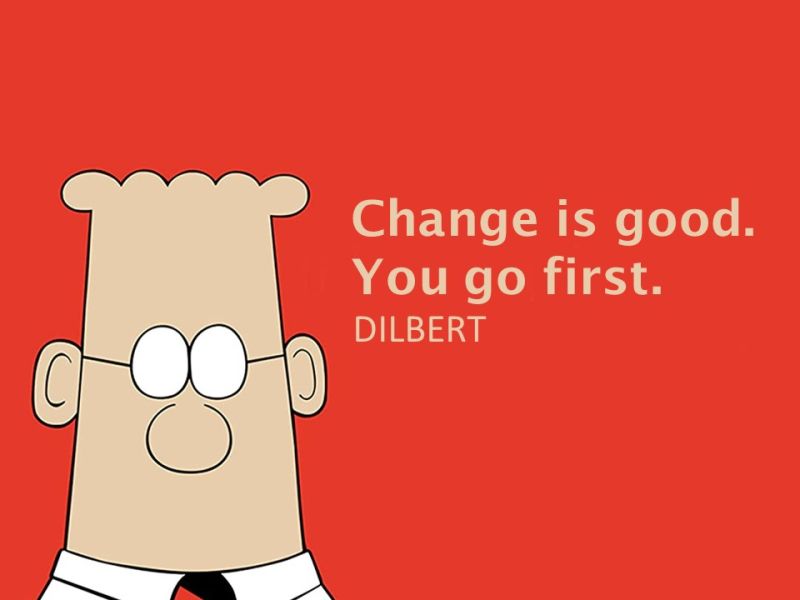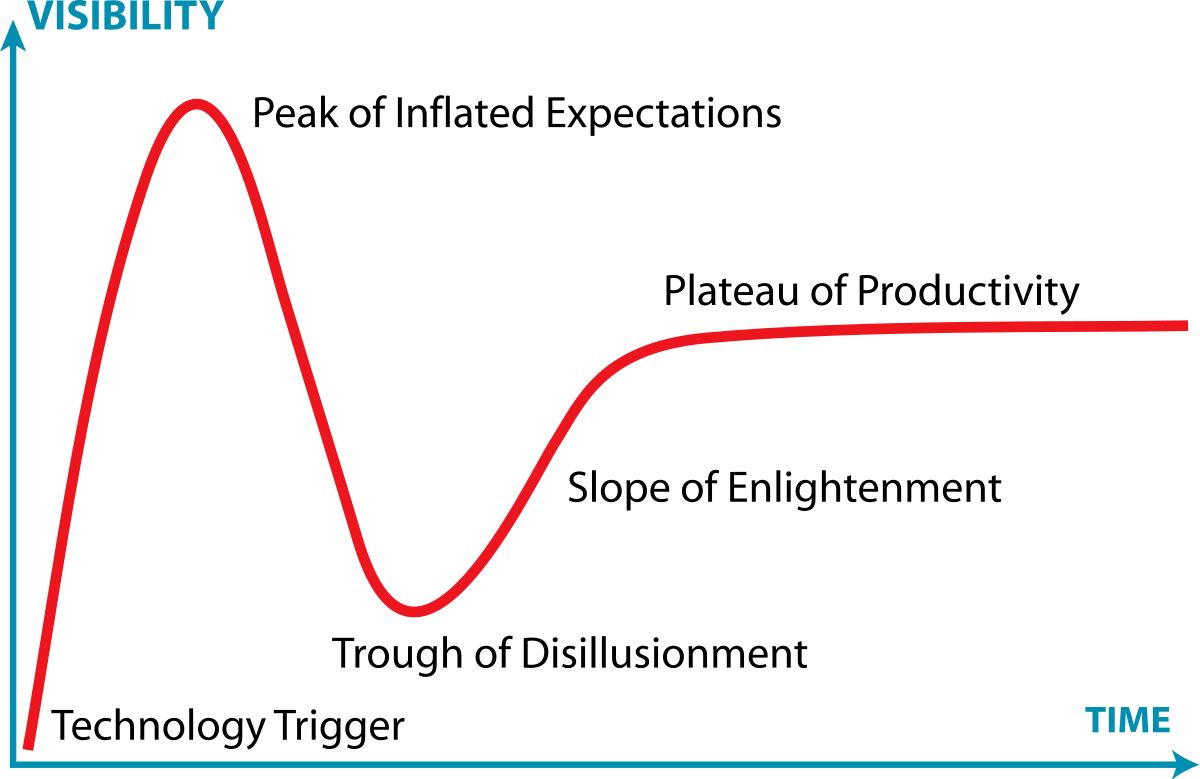The bias for newness; ebooks and audiobooks grow; Gershcovich’s lost year: Newsletter 3 April 2024

Newsletter 38: How to navigate a world dazzled by novelty; growing market for faith-based books; Russia’s steals a year of Wall Street Journal reporter’s life; plus, three people to follow and three books to read.
The disproportionate visibility of the new
I’ve been reading business news and analyzing business strategy for 40 years. One thing is clear:
We’re obsessed with the new. And it distorts our judgment.
Start with “news.” As in, the plural of “new.” Even in the twentieth century, there was little appetite for articles on how everything was the same as it was before. Since the Web, every piece of content competes for attention, creating an arms race of apparent newness.
Newness takes two forms: fear and greed.
Fear: Something new is coming, and you should be worried about it. Data breaches. Sea-level rise. Trillion-dollar budget deficits. Genetically engineered lab viruses.
Greed: Something new is coming, and you should profit from it. Blockchain. Metaverse. AI.
Consider the lifecycle of new commercial ideas.
They may start in academic or corporate research labs. No one gets to publish articles or obtains funding for proving that things aren’t changing. The point is to discover something new.
Startups get funded for originality. New ideas for protecting yourself or your company (fear). New ideas for making more money (greed). No startup ever got funded for doing the same old thing everyone is already doing.
Technology analyst firms make their living on the new. They calibrate the new. How afraid should you be? How greedy should you be? Which new technologies will take off? Which vendors will prevail? An unspoken bias towards newness pervades their work, because the new is what clients want advice on. Keep in mind that analyst firms get rewarded for identifying new and promising technologies, but rarely get punished for overoptimistic predictions.
Media takes its cue from the analysts and the startups. So we read about what’s changed, what might change, and what has the promise to change.

Gartner, observing this over and over, coined the “hype cycle,” which articulates the predictable pattern of vendors and media jumping on the bandwagon, overcovering the new, and then writing about their own overinflated expectations, creating the “trough of disillusionment.” Gartner even scores its own views on each tech on this lifecycle, perpetuating the mirage that all that matters is the new.
The unchanging status quo, of course, has its own constituency. Dominant corporations and complacent people are more comfortable if things stay the same (in the tech world, such a strategy is denigrated as being stuck with “legacy technology”). The desire to put one’s head in the sand is a bias, just as newness is.
So how do you decide what matters in a world flooded with breathless coverage of the new? Here are six pieces of advice:
- Don’t ignore the new. The time to learn is when it’s incubating. Read and listen for new trends. Just don’t get swept up in the waves of hype.
- Be aware that the new has its own built in publicity advantage. Recognize that everything you read is filtered through that lens.
- Be wary of words like “could,” “might,” and “is expected to.” New things often lack evidence. Those are are the words that reporters and analysts use to cover up that they’re just spitballing about the potential of an imagined wondrous tech or strategy.
- Look for examples of people and companies doing actual, useful things and accomplishing something. Look for numbers: did they increase sales, increase profit, or avoid problems? Case studies are revealing. A lack of case studies is even more revealing.
- Experiment cheaply. Try out that large language model. Do a cheap pilot project. You might learn that the real potential is not what the hype implies, but something different. Or you might be able to calibrate the gap between what’s promised and what’s possible, so you know what to look for.
- Always remember Amara’s law: “We tend to overestimate the effect of a technology in the short run and underestimate the effect in the long run.” So temper your expectations at first. But be prepared to change everything once it’s clear that the change is becoming pervasive — as, for example, computers, networks, the web, social media, mobile technology, and streaming did.
Change is always coming. The trick is to identify which changes, and how fast, in a world pixilated by newness.
News for writers and others who think
Publisher’s weekly reports that sales of religious books rose 7.8% last year to over $800 million (subscriber link). Faith is a response to terrifying world trends.
The growth in books is in ebooks and audio. According to accounting by the American Association of Publishers, ebook revenues sales in 2023 were up 0.6% to $1.0 billion and digital audio was up 14.9% to more than $800 million. Trade book revenues were down 0.3% to $8.9 billion.
Wall Street Journal reporter Evan Gershkovich has been jailed in Russia for one year. The Wall Street Journal ran an eerie blank article on its front page, “His Story Should Be Here,” to dramatize Russia’s cruel act of aggression against the truth.

Three people to follow
Paul Michelman, editor in chief at Boston Consulting Group, clarifying the trends corporate strategists should follow.
Jules Pieri, founder of cool-stuff ecommerce site The Grommet.
Jessica Gioglio, thought leader on digital marketing trends.
Three books to read
The Skeptics’ Guide to the Future: What Yesterday’s Science and Science Fiction Tell Us about the World of Tomorrow, by Steven Novella, with Bob Novella and Jay Novella (Grand Central, 2022). What futurists get wrong.
Making Numbers Count: The Art and Science of Communicating Numbers by Chip Heath and Karla Starr (Simon & Schuster, 2022). Using numbers clearly is essential to writers and business decision-makers — here’s how not to screw it up.
The Chicago Guide for Freelance Editors: How to Take Care of Your Business, Your Clients, and Yourself from Start-Up to Sustainability by Erin Brenner (University of Chicago, 2024). How to run a successful freelance editing business.
Yes, Russia stole one calendar year of Evan Gershkovich’s life. I don’t think anyone can measure so easily what they’ve stolen from him physically and emotionally. I can’t imagine what his ordeal must be like. Hopefully they won’t steal much more from him.